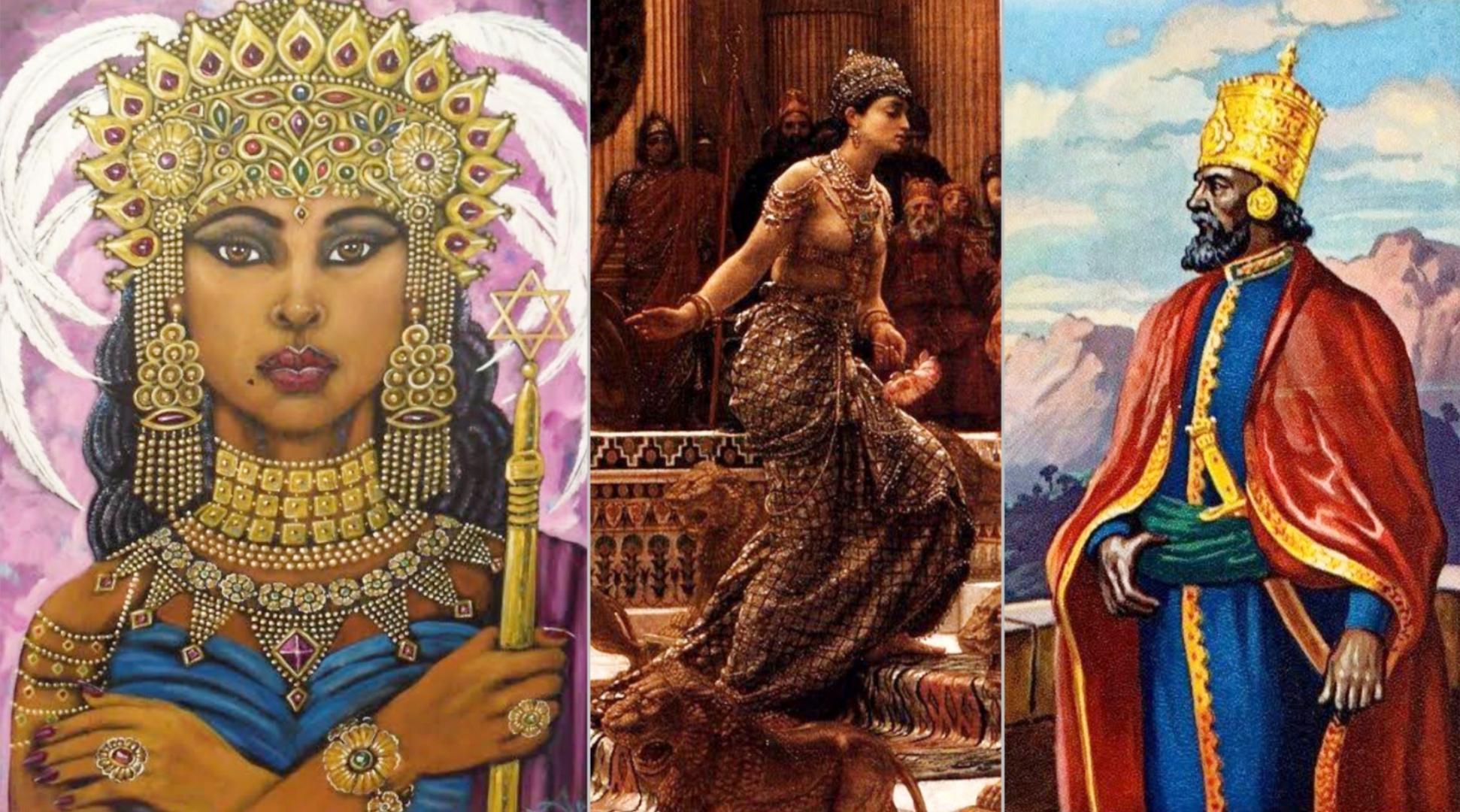Many religious texts, including the Bible, Quran, Targum Sheni, and Ethiopian work, Kebra Negas, reference Makeda, the Queen of Sheba in present-day Ethiopia.
She is referenced to have been a wise, wealthy and very influential ruler who had to meet King Solomon to verify reports of his intelligence and after a series of examinations, she showered him with valuable gifts.
Queen of Sheba, Arabic Bilqīs, Ethiopian Makeda, (thrived 10th century BCE), as per Jewish and Islamic traditions, queen of the Saba (or Sheba) Kingdom in Southwest Arabia. In the biblical account of King Salomon’s reign, Queen of Sheba attended King Solomon his court at the head of a camel caravan carrying gold, gems, and spices.
The history is proof of the existence of significant trade ties between ancient Israel and Arabia. The object of her visit, according to the Bible, was to test the wisdom of Solomon by asking him to solve a series of riddles.
The story of Bilqīs, as the Queen of Sheba is known in Islamic tradition, appears in the Qurān, although not specifically by name, and Muslim writers have embellished her story.
The Arabs also gave Bilqīs a genealogy from southern Arabia, and she is the subject of a widespread series of legends. Solomon, having heard from a hoopoe, one of his birds, that Bilqīs and her kingdom were worshipping the Sun, sent a letter asking her to worship God, according to one account.
She responded by sending gifts, but when Solomon proved unwelcome to them, she came herself to his court. While the king’s jinn, thinking the king would be tempted to marry Bilqīs, whispered to him that she had hairy legs andthe hooves of an ass
Solomon, wondering about such a strange phenomenon, had a glass floor installed in front of his throne, so that Bilqīs, tricked into believing it was water, lifted her skirts to cross it and discovered that her legs were very hairy.
Then Solomon ordered the jinn to make a queen depilatory. Tradition does not accept whether Solomon married Bilqīs himself or gave her in marriage to a Hamdānī tribesman. She did yet became a believer. ⠀
The Queen of Sheba appears as a leading character in the story of the Kebra Nagast (“King’s Glory”), the Ethiopian national epic and creation. According to this story, after learning about his wisdom the Queen of Sheba (called Makeda) visited the court of Solomon.
Queen Sheba stayed there for six months learning from Solomon.She was tricked by the king into his room on the last night of her stay and she got pregnant.
She went back to her kingdom where she gave birth to Menilek, a son of Solomon. Menilek I was made a king and thereby established Ethiopia’s ruling Solomonic dynasty, which existed until the downfall of Haile Selassie I in 1974.
The Queen of Sheba myth also features among the Persians (probably originating from Jewish tradition), where she is regarded a Chinese king’s daughter and a peri.
Source: https://www.britannica.com
 The African History Truly African
The African History Truly African

